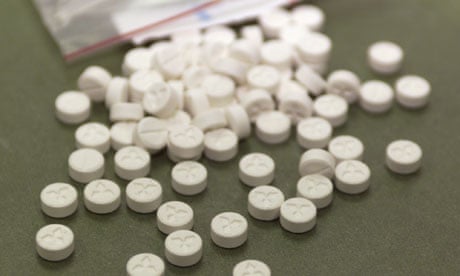When it comes to the new wave of legal highs, our politicians are like Amish farmers blinking up at jet planes tearing across the sky. They are wilfully living "out of time" but certain of the virtue of their archaic methods.
The internet has revolutionised the drugs market. The impact of synthetic legal highs simply cannot be addressed through the traditional response of governments deploying greater enforcement, bellowing overblown messages to young people and offering an Elastoplast of treatment.
The Demos/UKDPC report Taking Drugs Seriously published today, for which I was a contributor, sets out clearly how legal highs have exposed the ancient Misuse of Drugs Act 1971 (MDA) as totally inadequate legislation. They propose a whole new range of regulatory controls for the 600 or so drugs (and growing) covered by the act. The report was described by Britain's most senior drugs officer, Chief Constable Tim Hollis, as "a timely and helpful contribution".
The Home Office has tried to adapt to legal highs but only through the same exhausted methodology. New legislation currently passing through parliament (the police and social responsibility bill) will grant powers to a home secretary to impose an immediate "ban" on new substances lasting 12 months. It is not a workable solution – there is no evidence to suggest making a drug controlled can reduce its use.
The European Monitoring Centre (EMCDDA) met last week and listed 41 new substances which have emerged in 2010 alone. The Advisory Council on the Misuse of Drugs would struggle to assess a tenth of that number in a year. The new law would not include a possession offence but the police have no way of distinguishing between new substances and any other white powder which may be cocaine or amphetamines. They will still have to arrest young people in their thousands. Treating people this way and giving them criminal records for other drugs should be viewed as a harm in itself.
Maryon Stewart, whose daughter died in 2009 after consuming GBL, has established the Angelus Foundation in her memory. She said "each time a ban is enforced it seems that the chemists simply tweak the molecules and create a 'new' substance". She said there was an urgent need to "raise awareness and educate young people as well as their parents".
Professor David Nutt, of the Independent Scientific Committee on Drugs, said: "Banning without evidence of harm is misconceived and may cause more problems than it solves. What we need is a complete review of all drug and alcohol legislation, not tinkering at the edges."
The UKDPC advocates using consumer protection regulation to force sellers to demonstrate the safety of their products. We have come to expect drug suppliers being dealt with by hordes of officers storming residences and premises. But using trading standards officers would be a much more responsive approach to a new and bewildering problem for enforcement agencies. For example, the legal high "Ivory Wave" does not actually contain anything like a consistent drug profile from product to product. It is effectively a brand containing any manner of unknown stimulants – it should not be for sale, but cannot effectively be banned under the MDA.
In the longer term, the Demos/UKPDC report proposes a "comprehensive harmful substances control act covering the supply of all potentially harmful substances, including alcohol, solvents and tobacco". This novel approach is also supported by the New Zealand Law Commission and would allow for more credible health messaging where all drugs, legal and illegal, are included. The Home Office said: "We believe the MDA works and continues to protect the public from the serious harms caused by illicit drug use."
Roger Howard, chief executive of the UK Drug Policy Commission, said: "Forty years ago, the Misuse of Drugs Act was passed in a world where new drugs came along every few years, not every few weeks. The argument about whether to be tough or soft about drugs is increasingly redundant in the era of the internet and global trade: we have to think differently."
The political "default" has become a "bias" to prohibition and we have just got very used to it. But this response is one-eyed, like a preacher who explains the world entirely through the prism of the scriptures determinedly ignoring scientific analysis and the way society has developed around us.
The point could hardly be better exemplified than by a question in parliament to the former drugs minister, James Brokenshire, last week. David Burrowes MP referred to the harms of an "old drug", cannabis, and its "probable causal link to mental illness, especially psychosis and schizophrenia". Having specified a significant mental health problem, he then implored the government to "continue to take a tough line and ensure effective enforcement of the law on possession of cannabis".
Sending more police to make arrests to solve a public health problem is, frankly, a bizarre suggestion. But most politicians would probably agree with the statement. It is time ministers confronted the present and found a more sophisticated response to the issue of drugs policy than simply reaching for the torches and pitchforks.
